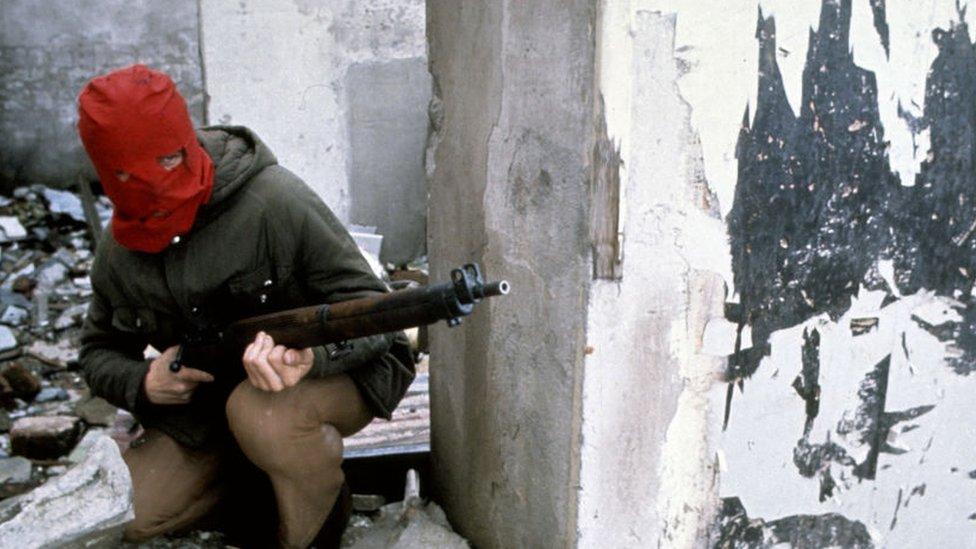NI Troubles: UVF gives 1974 murder account to Crawford family
- Published
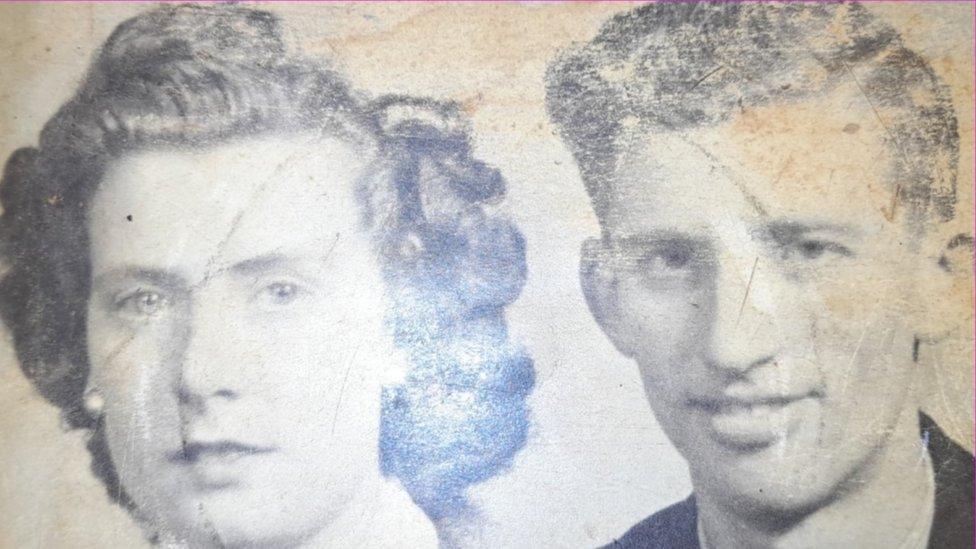
John Crawford pictured with his wife Eileen - he was murdered near his upholstery factory in west Belfast
The family of a Catholic man shot dead in 1974 have said the loyalist group responsible has given them a full account of what happened.
It follows a seven-year process involving an interlocutor.
John Crawford, 52, was murdered by the Ulster Volunteer Force (UVF) near his upholstery factory in west Belfast.
His son Paul said: "I do not believe in closure - my father was unjustifiably taken from us - but this process has delivered absolutely full answers."
The UVF never admitted to the murder at the time as it was on a ceasefire.
Four years later, one man, James Glover, was convicted after confessing his involvement, but the family said it learned little from the trial or subsequent investigations.
An initiative to obtain further information began in 2016, using leading loyalist Winston Irvine as an interlocutor.
Mr Irvine is currently charged with firearms offences.
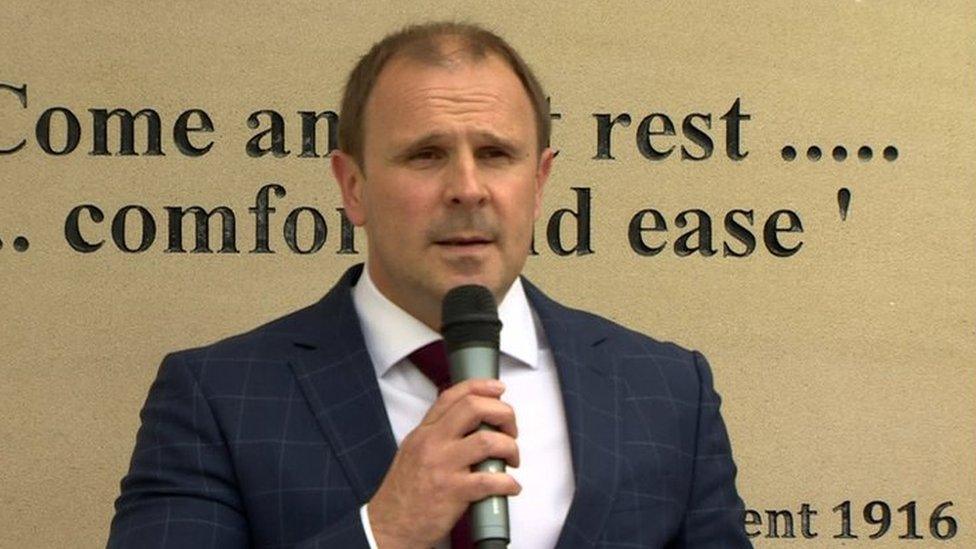
Winston Irvine served as an interlocutor between the Crawford family and loyalist paramilitary group the UVF
Mr Crawford worked with Mr Irvine to ask questions, receive answers and verify what he was told.
As well as formally acknowledging its involvement, the UVF said it accepted the information it acted on was "flawed".
At the end of the process, it gave Mr Crawford a report written on UVF-headed notepaper, which the family said would remain private.
"To me, the greatest degree of resolution possible has been obtained," Mr Crawford said.
"Closure in my mind does not exist: you cannot bring back the dead. But a full, honest explanation - that helps."
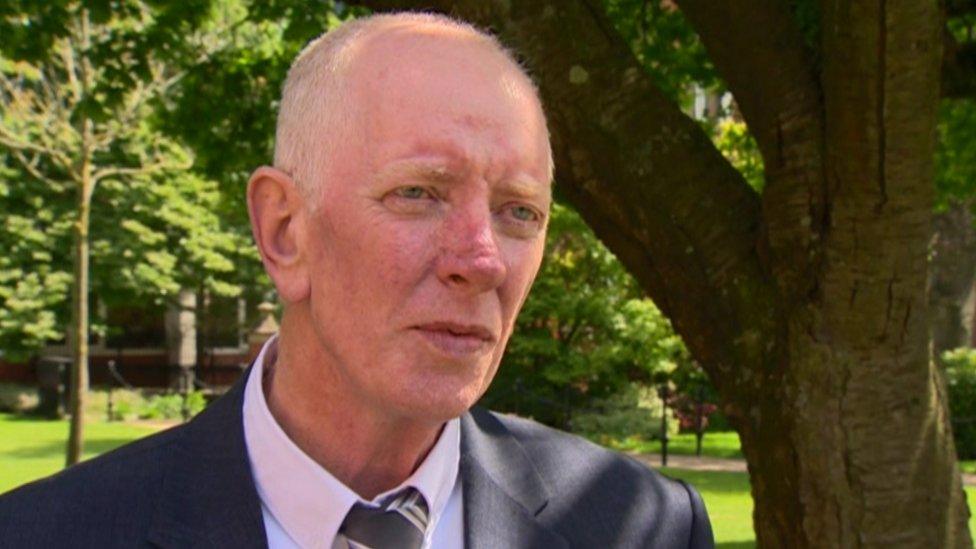
Paul Crawford said his family now had answers
Northern Ireland Victims' Commissioner Ian Jeffers argued that the legacy bill would discourage groups from coming forward as they would not be granted immunity.
"I do believe that groups will, given the right circumstance, provide information but I worry the bill could slam the door on that and not encourage a group to come forward.
"Here we had a corporate group giving information for nothing other than for the peace of that family, the Crawford family."
Mr Jeffers added that in the killing of John Crawford there was a "complete hierarchy of people involved" not solely one individual.
Bill 'abandons interlocutor approach'
The engagement between Mr Crawford and the UVF is detailed in a 25-page report by Queen's University academic Kieran McEvoy.
He described the process as "a first" for loyalism.
Mr McEvoy is a critic of the government's legacy bill, which would create a new body responsible for information recovery and offer conditional amnesties.
The bill has been criticised by victims' groups, the Irish government and political parties at Stormont.
It introduces conditional amnesties to perpetrators of Troubles-related crimes if they co-operate with a new truth-recovery body known as the Independent Commission for Reconciliation and Information Recovery (ICRIR).
Mr McEvoy said the bill "abandons" the interlocutor approach, which was agreed by the British and Irish governments in 2014.
He believes it is unlikely paramilitary groups will engage with the new legacy body.
"I get no indication at all that any of the armed groups will endorse the bill. There is no protection for an interlocutor," he said.
"All the thinking that went into it is gone."

What is the Troubles legacy bill?
It is legislation that aims to draw a line under the Northern Ireland Troubles by dealing with so-called legacy issues, including unsolved killings
A central element involves immunity from prosecution for those who co-operate with fact-finding investigations into Troubles-era crimes
The investigations will be carried out by a new body, the Independent Commission for Reconciliation and Information Recovery (ICRIR)
The Northern Ireland Troubles (Legacy and Reconciliation) Bill was introduced in May 2022 under the then prime minister Boris Johnson
Victims' groups, Stormont's political parties and the Irish government are opposed to the bill,
The legislation is supported by the Northern Ireland Veterans Movement

Related topics
- Published14 May 2023
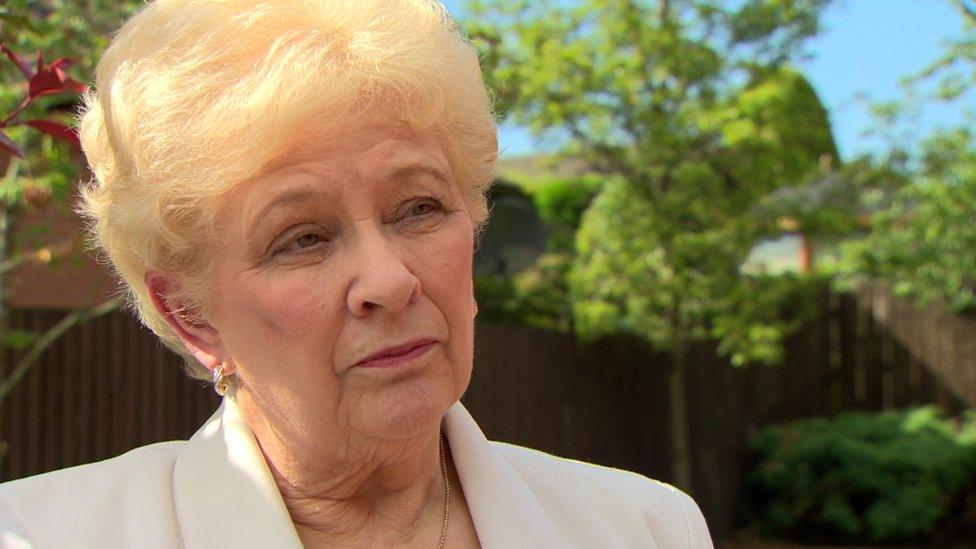
- Published9 December 2022
